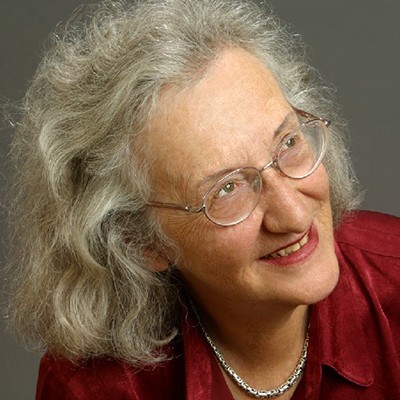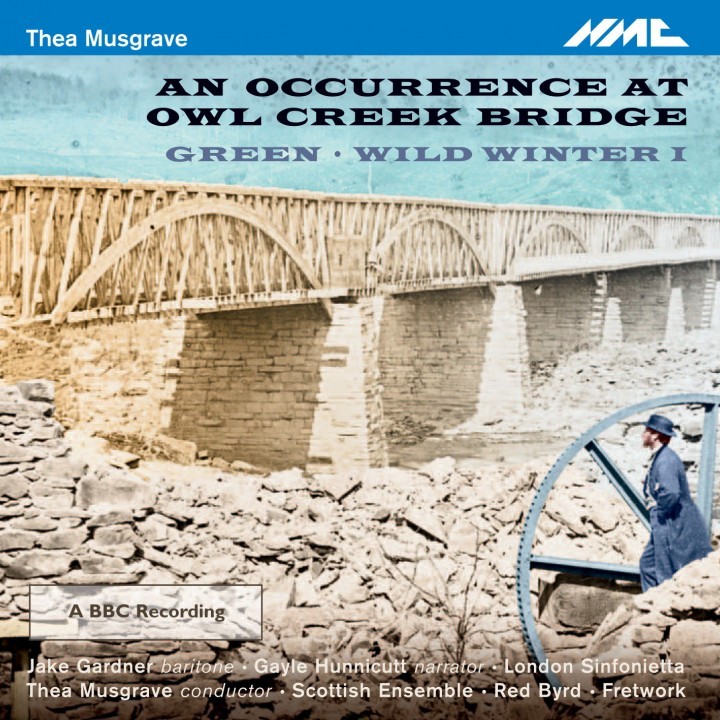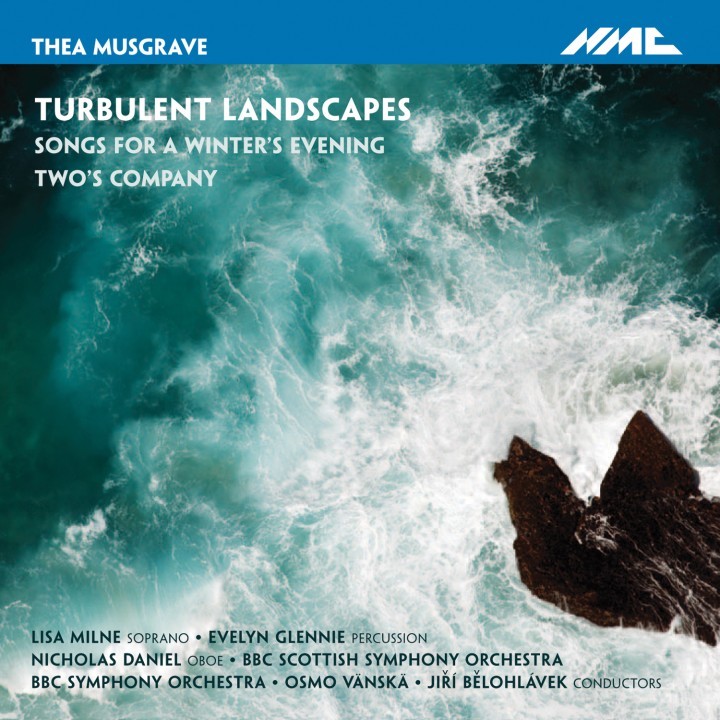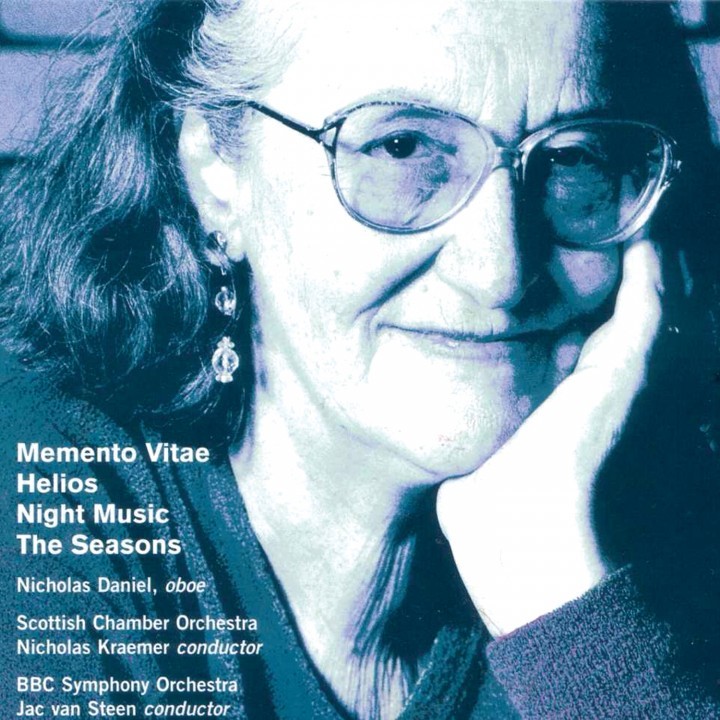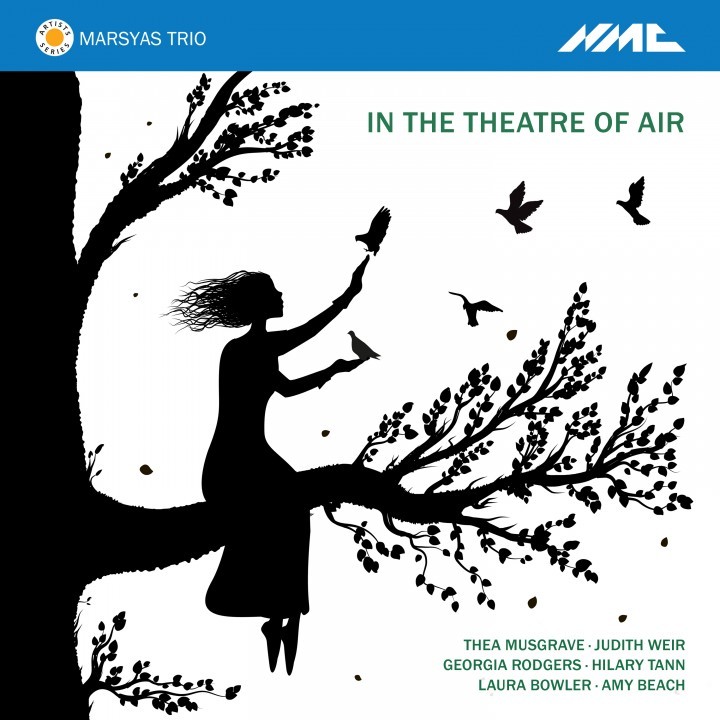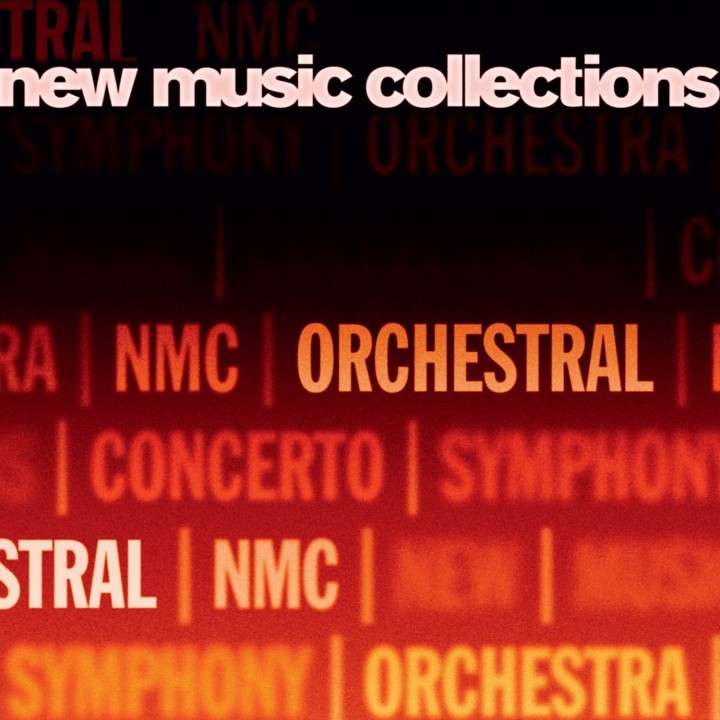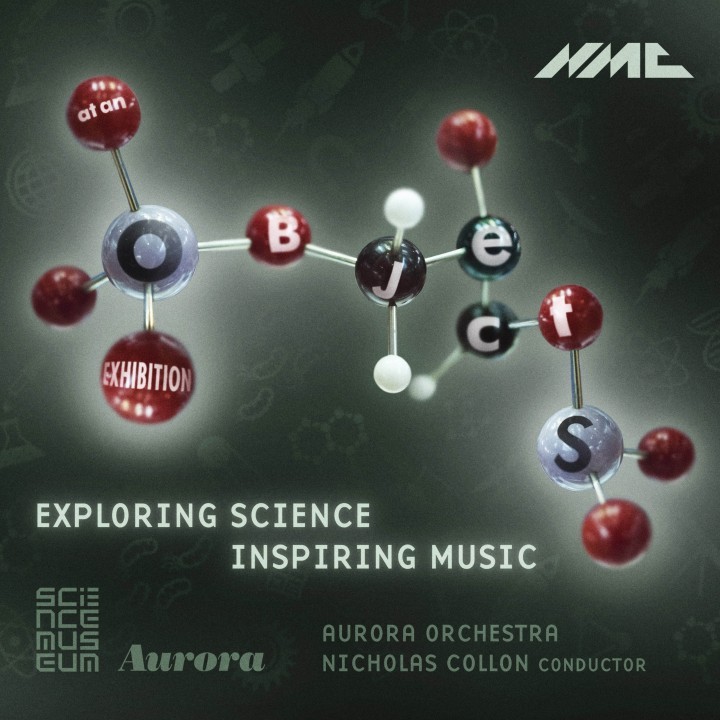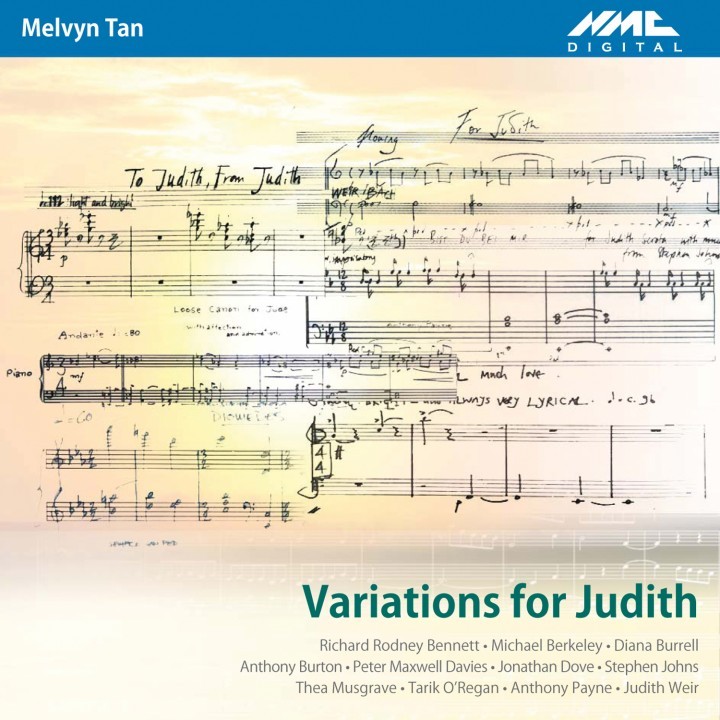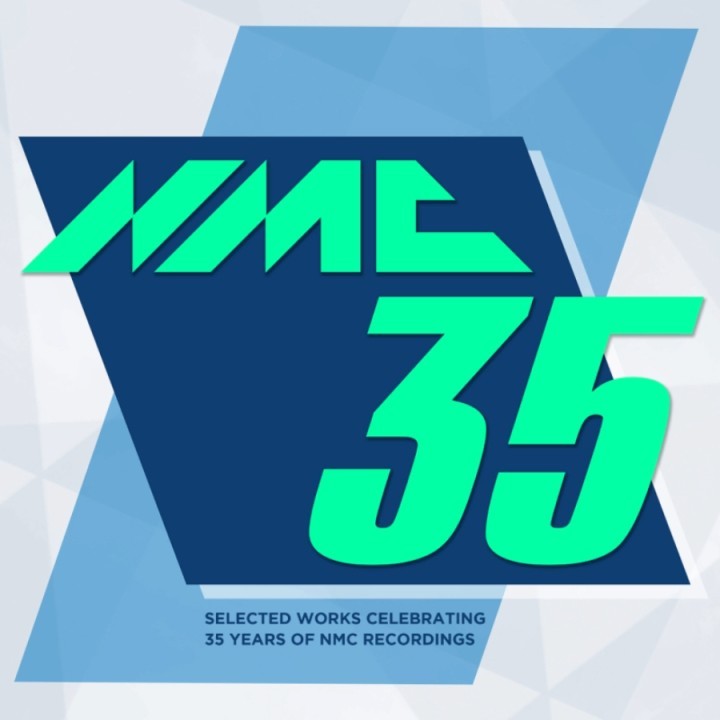Thea Musgrave
Born in Edinburgh in 1928, Thea Musgrave studied at the University of Edinburgh then in Paris, where she spent four years as a pupil of Nadia Boulanger, before establishing herself in London with her orchestral, choral, operatic and chamber works. In 1970 she was named guest professor at the University of California, Santa Barbara, which anchored her increasing involvement with the musical life of the United States. In 1971 she married the American violist and opera conductor Peter Mark and she now lives in the US. In 1974 she received the Koussevitzky Award; she has also been awarded two Guggenheim Fellowships, and was recognized with honorary degrees by Old Dominion University (Virginia), Smith College, Glasgow University and in 2004 the New England Conservatory in Boston. She was awarded a CBE in the Queen's New Year Honours List in 2002. As Distinguished Professor at Queens College, City University of New York from September 1987 to 2002, she guided many young and gifted student composers.
Musgrave has consistently explored new means of projecting essentially dramatic situations in her music, frequently altering and extending the conventional boundaries of instrumental performance by physicalising their musical and dramatic impact. As she once put it, she wanted to explore dramatic musical forms: some works are dramatic-abstract, that is, without programmatic content (such as the Clarinet Concerto, Horn Concerto, Viola Concerto and Space Play), while others project specific programmatic ideas (such as the paintings in The Seasons, the poems in Ring Out Wild Bells, Journey through a Japanese Landscape, Autumn Sonata and the famous Greek legends in Orfeo, Narcissus, Helios and Voices from the Ancient World) - all extensions of concerto principles. Most recently, the large-scale work for the Boston Symphony Orchestra, Turbulent Landscapes based on paintings by J.M.W. Turner. In some of these works, to enhance the dramatic effect, the sonic possibilities of spatial acoustics have been incorporated: in the Clarinet Concerto, the soloist moves around the different sections of the orchestra, and in the Horn Concerto the orchestral horns are placed around the hall
It was therefore not surprising that her focus on the lyric and dramatic potential of music should have led to Musgrave's fluency in writing opera; her large-scale works of the past thirty years - beginning with The Voice of Ariadne (1972) and followed by Mary, Queen of Scots (1977), A Christmas Carol (1979) and Harriet, the Woman Called Moses (1984) - are in every sense the consequence of the instrumental concertos. Simón Bolívar (1993), like many of her stage works, focuses on an historic figure whose life takes on an epic or archetypal dimension. Her newest opera, Pontalba (2003), again places the heroic struggle of its heroine in a larger historical context, the Lousiana Purchase and the forging of the new United States.
From a biography by Claire Brook, reproduced courtesy of Chester Novello
Born in Edinburgh in 1928, Thea Musgrave studied at the University of Edinburgh then in Paris, where she spent four years as a pupil of Nadia Boulanger, before establishing herself in London with her orchestral, choral, operatic and chamber works. In 1970 she was named guest professor at the University of California, Santa Barbara, which anchored her increasing involvement with the musical life of the United States. In 1971 she married the American violist and opera conductor Peter Mark and she now lives in the US. In 1974 she received the Koussevitzky Award; she has also been awarded two Guggenheim Fellowships, and was recognized with honorary degrees by Old Dominion University (Virginia), Smith College, Glasgow University and in 2004 the New England Conservatory in Boston. She was awarded a CBE in the Queen's New Year Honours List in 2002. As Distinguished Professor at Queens College, City University of New York from September 1987 to 2002, she guided many young and gifted student composers.
Musgrave has consistently explored new means of projecting essentially dramatic situations in her music, frequently altering and extending the conventional boundaries of instrumental performance by physicalising their musical and dramatic impact. As she once put it, she wanted to explore dramatic musical forms: some works are dramatic-abstract, that is, without programmatic content (such as the Clarinet Concerto, Horn Concerto, Viola Concerto and Space Play), while others project specific programmatic ideas (such as the paintings in The Seasons, the poems in Ring Out Wild Bells, Journey through a Japanese Landscape, Autumn Sonata and the famous Greek legends in Orfeo, Narcissus, Helios and Voices from the Ancient World) - all extensions of concerto principles. Most recently, the large-scale work for the Boston Symphony Orchestra, Turbulent Landscapes based on paintings by J.M.W. Turner. In some of these works, to enhance the dramatic effect, the sonic possibilities of spatial acoustics have been incorporated: in the Clarinet Concerto, the soloist moves around the different sections of the orchestra, and in the Horn Concerto the orchestral horns are placed around the hall
It was therefore not surprising that her focus on the lyric and dramatic potential of music should have led to Musgrave's fluency in writing opera; her large-scale works of the past thirty years - beginning with The Voice of Ariadne (1972) and followed by Mary, Queen of Scots (1977), A Christmas Carol (1979) and Harriet, the Woman Called Moses (1984) - are in every sense the consequence of the instrumental concertos. Simón Bolívar (1993), like many of her stage works, focuses on an historic figure whose life takes on an epic or archetypal dimension. Her newest opera, Pontalba (2003), again places the heroic struggle of its heroine in a larger historical context, the Lousiana Purchase and the forging of the new United States.
From a biography by Claire Brook, reproduced courtesy of Chester Novello
Recordings by this composer
RecordingsCompilations with this composer
CompilationsRelated composers
Related composersMusic Map
Discover more about the classical music of today with NMC's Music Map, and exciting and educational online tool which enables you to see and hear the connections between composers, their teachers, pupils, influences and their works.
Music Map
